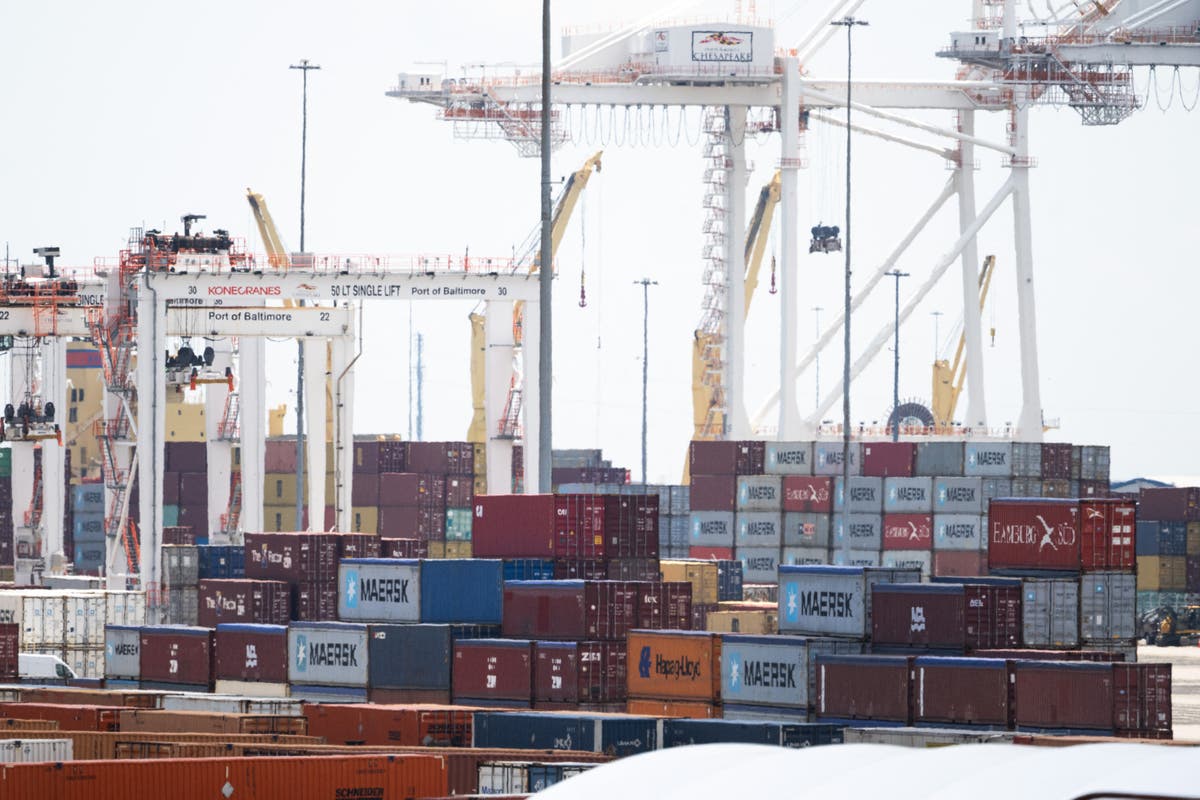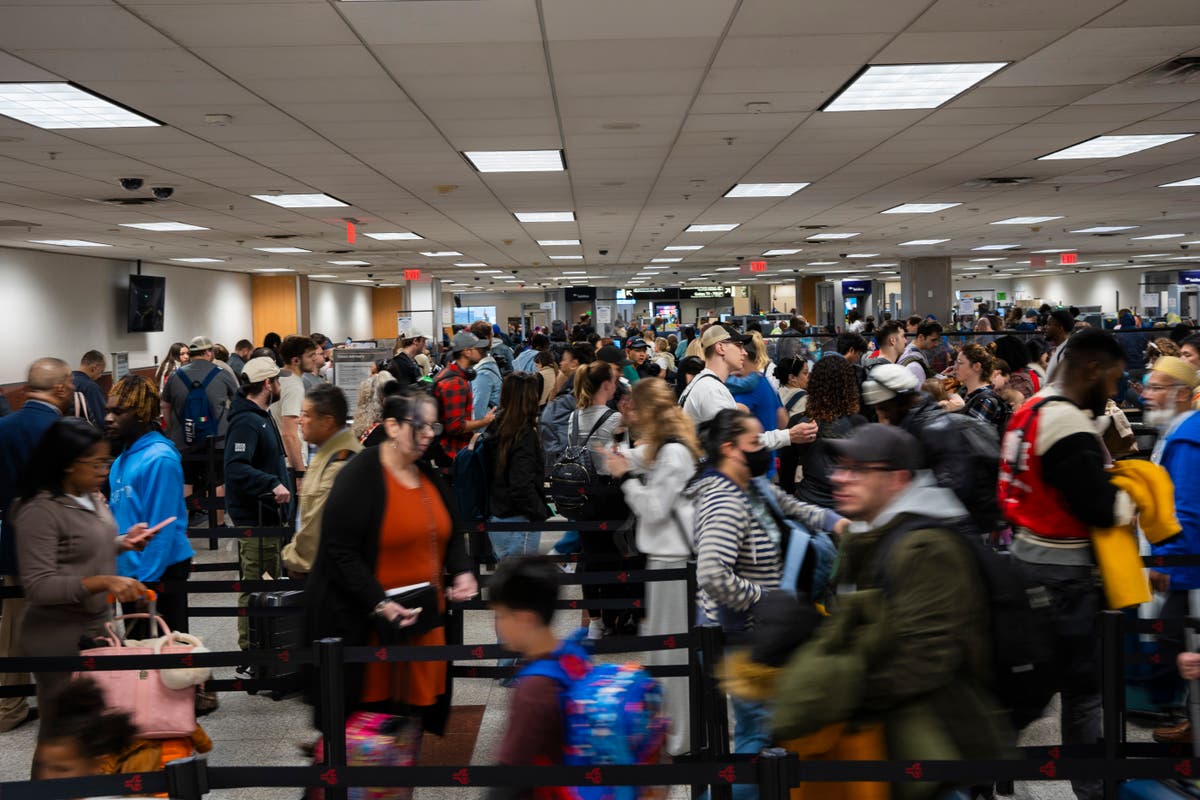South Korea’s capital, Seoul, has faced its heaviest November snowfall on record, bringing power cuts and flight disruption.
Seoul was blanketed in the first snowfall of this year’s winter, with 16.5cm (6.5 inches) of snow dumped by 7am on Wednesday, the Korea Meteorological Administration (KMA) said.
It was four centimetres more than the previous record setting snowfall on 28 November 1972, when residents witnessed 12.4cm of snow.
The KMA said it was the heaviest snowfall of the November month since the records began more than a century ago in 1907.
At least two people have been killed and four others were injured in a five-vehicle accident in the eastern town of Hongcheon following traffic accidents on highways in the east of the capital.
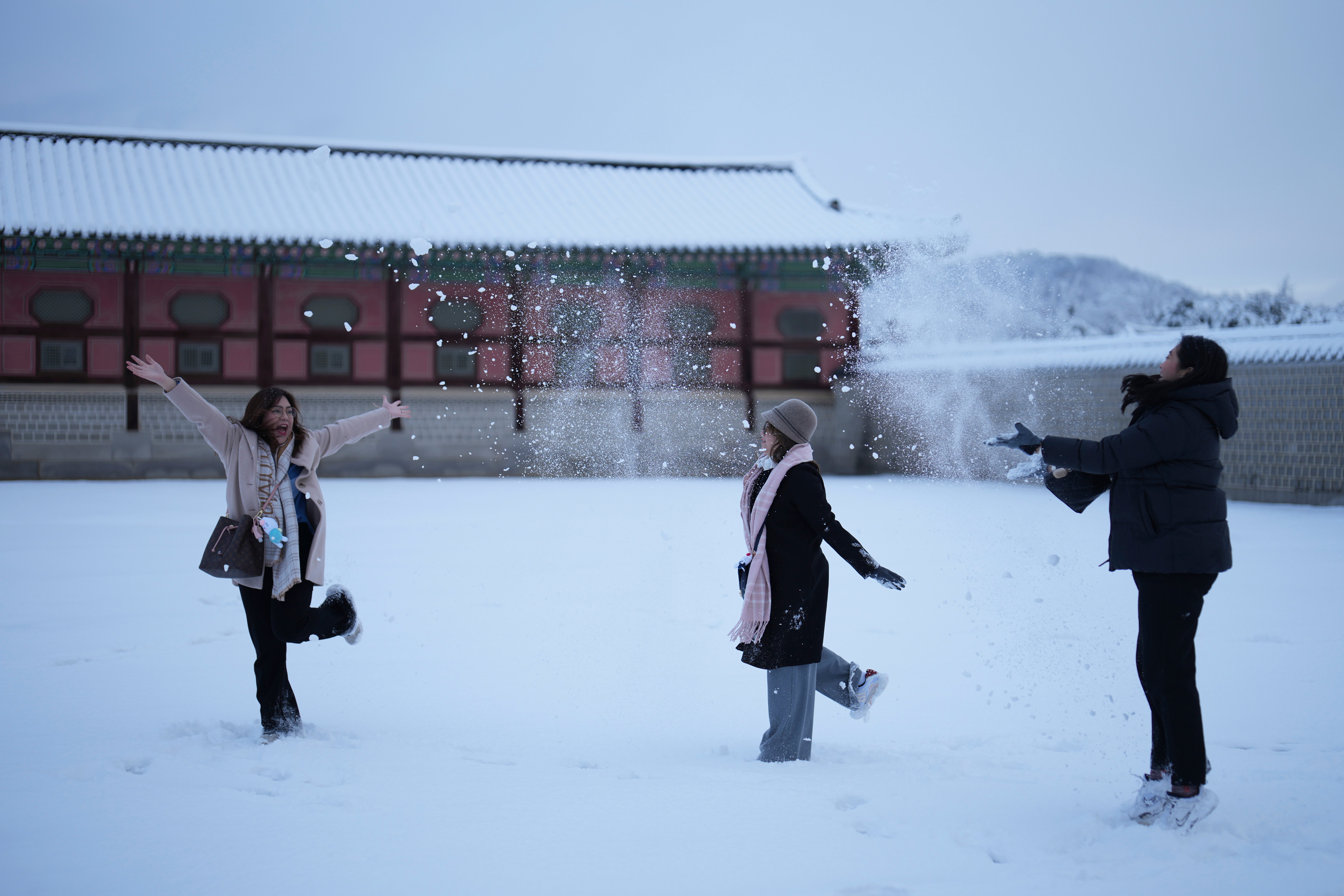
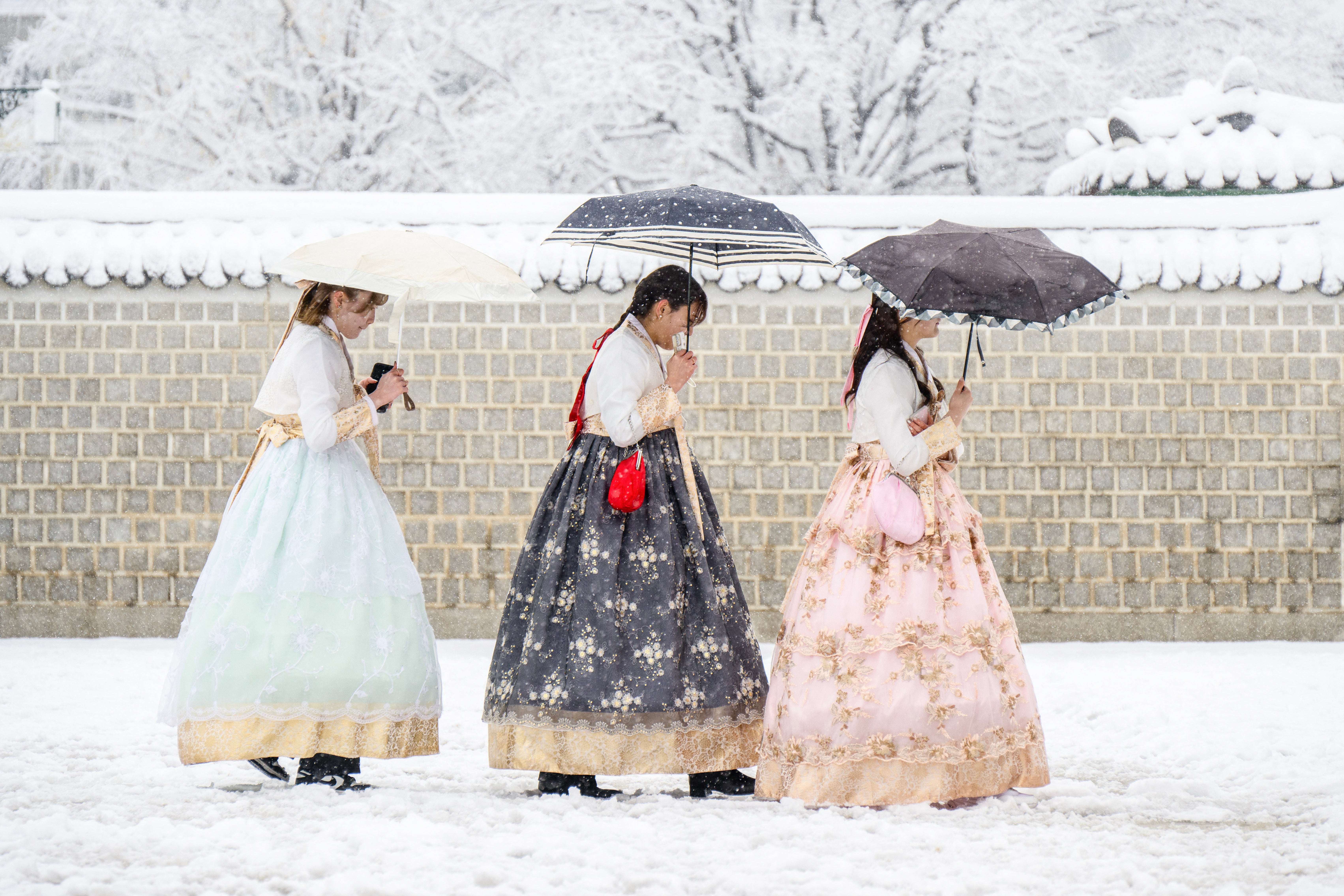
Some pedestrians were injured after debris and construction material fell from buildings and construction sites due to strong winds.
The rare heavy November snow blizzard caught many in the country by surprise, as authorities grapplied to restore power, clear roads and pavements and issue warnings.
More than 220 flights stood cancelled or delayed across as the severe weather conditions impacted the airports across the country and hundreds of passengers suffered delays.
At least 70 ferries were suspended as strong winds hit the coastal regions.
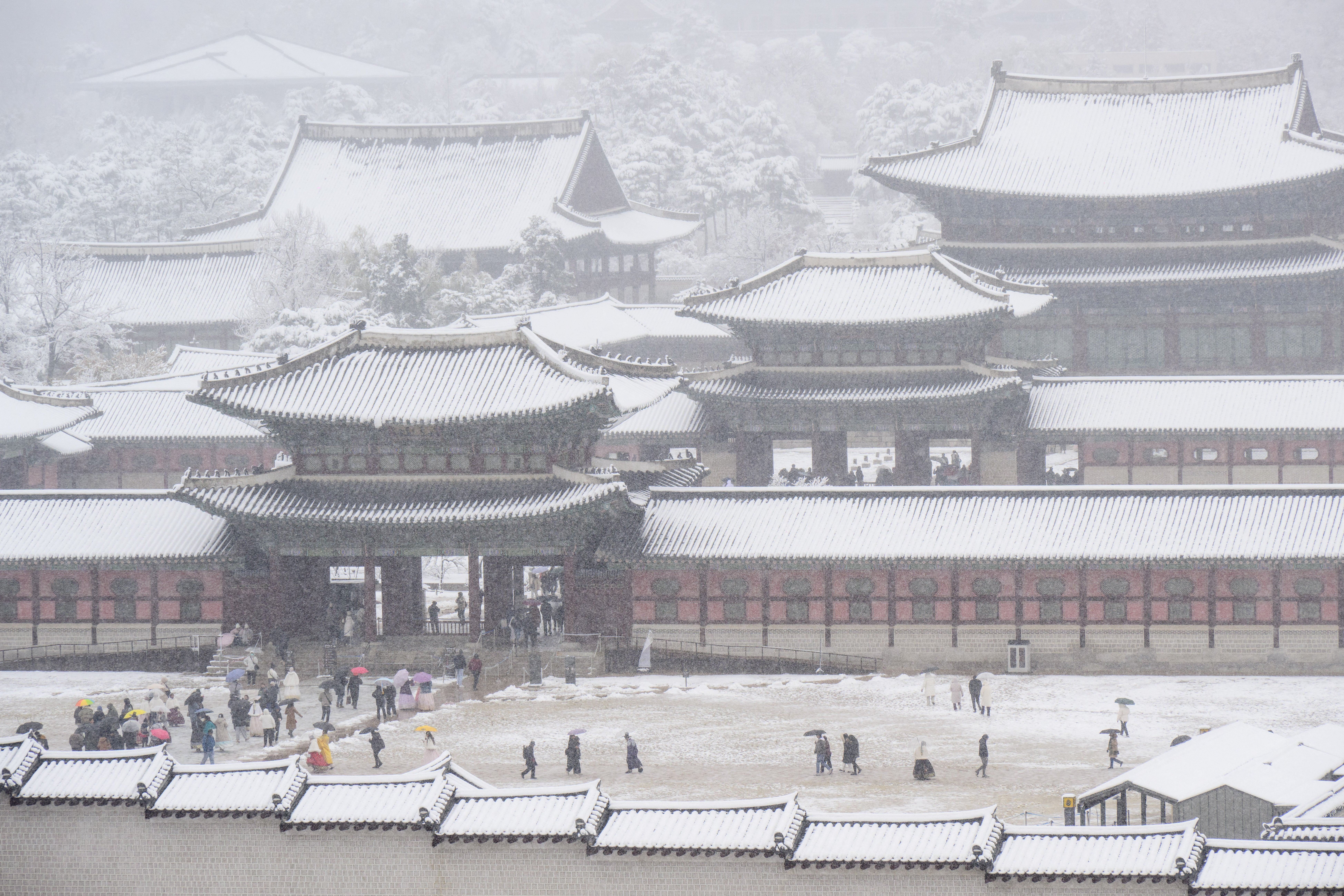
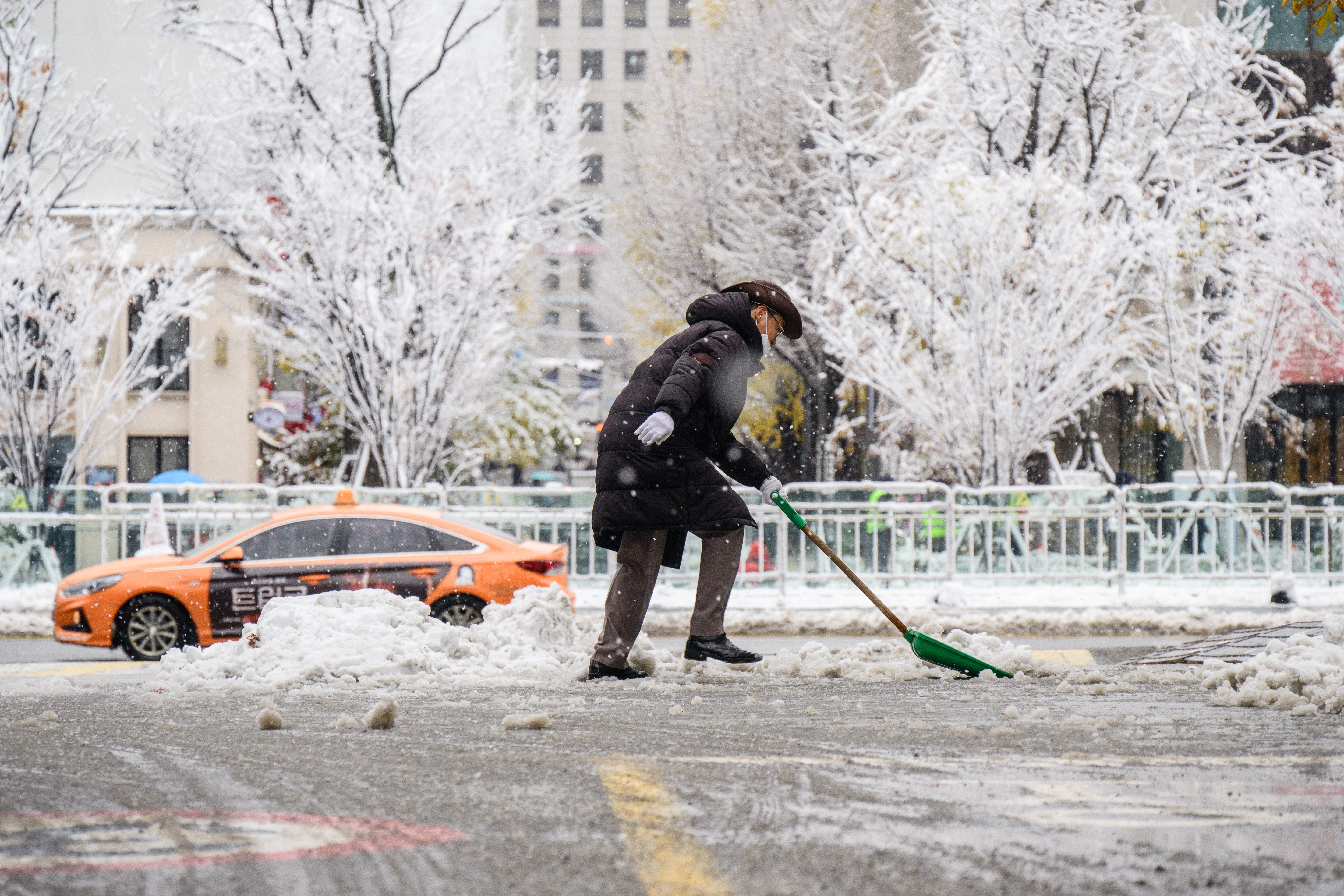
Treacherous icy roads disrupted the morning commute in Seoul, as emergency crews nationwide tackled safety hazards, including fallen trees.
Hundreds of households suffered blackout in the early morning hours in Seoul and the central region as falling tees and snow damaged electricity lines.
Weather agencies in the country have warned of more snow and severe weather in the coming days for Seoul residents.
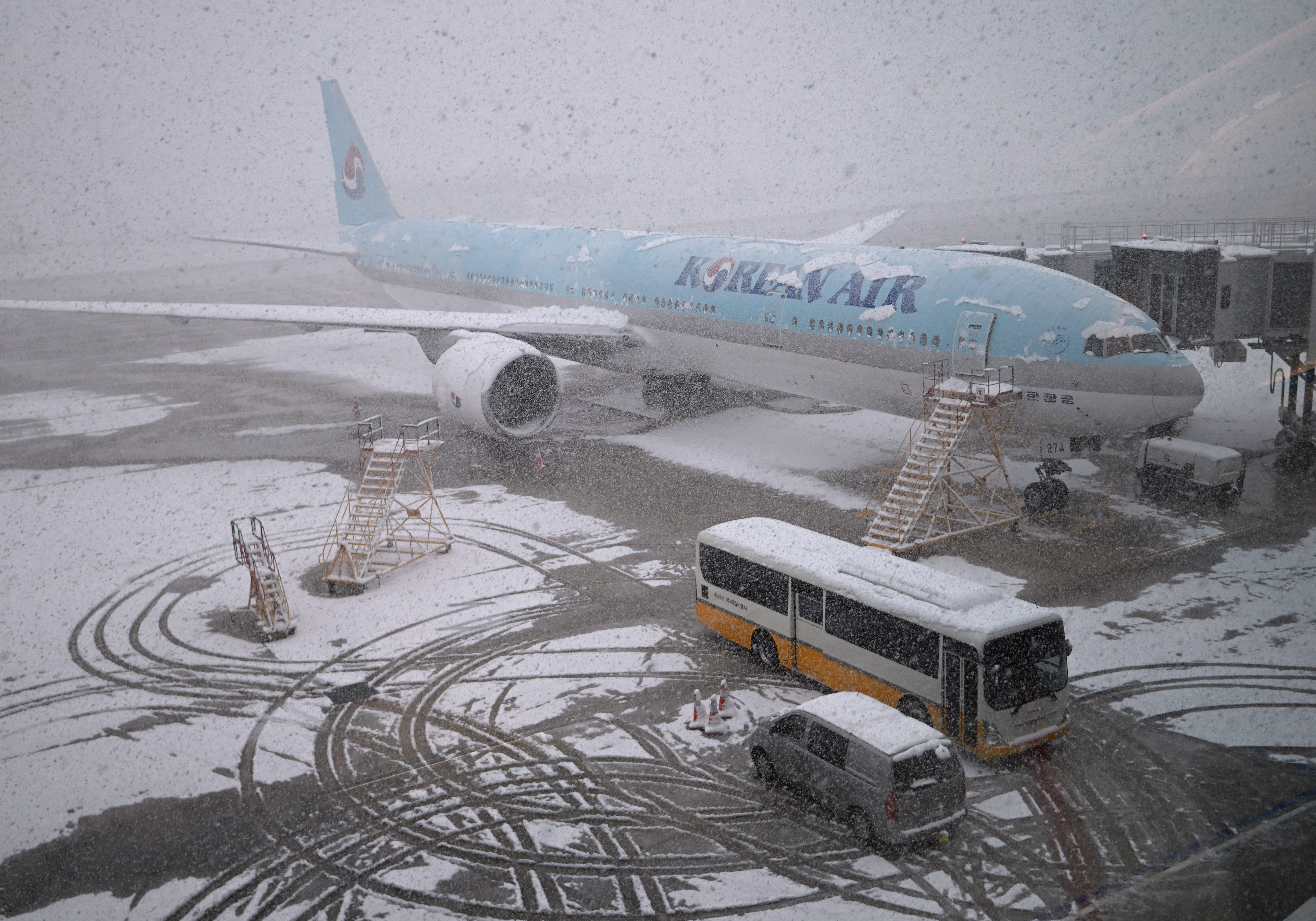
The Interior Ministry upgraded its disaster response saying up to 5cm an hour of snow was forecast through Thursday morning.
It warned of risk of damage to facilities and property as the wet snow had a high concentration of moisture.
Meteorological officials have said a slow-moving low-pressure system north of the Korean Peninsula is pulling cold air from Russia’s far east toward the Yellow Sea, leading to snowfall. They said the snow blast was intensified due to warming up of the Yellow Sea due to the climate change.
